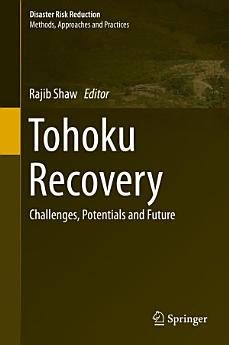Tohoku Recovery: Challenges, Potentials and Future
Tentang eBook ini
This book has 13 chapters in two parts. The first part of the book, with seven chapters, provides a set of lessons from diverse sectors. The second part, with six chapters, provides case studies from different areas of Tohoku. Six specific issues are addressed in part 1: the role of international agencies, livelihood (namely, fisheries) recovery, temporary housing, health, heritage, and lesson sharing. Part 2 has six case studies from different areas of the Tohoku region, including Fukushima.
The primary target groups for this book are students and researchers in the fields of environment, disaster risk reduction, and recovery studies. The book provides them with a good idea of the current research trends in the field and furnishes basic knowledge about these vital topics. Another target group comprises practitioners and policy makers, who will be able to apply the knowledge collected here to policy and decision-making.
Tentang pengarang
Rajib Shaw is a Professor in the Graduate School of Global Environmental Studies of Kyoto University, Japan. He worked closely with the local communities, NGOs, governments and international organization, including United Nations, especially in the Asian countries. He is currently the Chair of the United Nations Asia Regional Task Force for Urban Risk Reduction, and the President of Asian University Network of Environment and Disaster Management (AUEDM). His research interests are: community based disaster risk management, climate change adaptation, urban risk management, and disaster and environmental education. He has published several books in the field of disaster and environmental management. He is also the Chief Editor of Asian Journal of Environment and Disaster Management.






